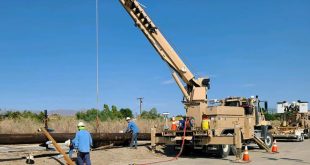 By: Dr. Alejandro Diaz-Bautista, Economist and Researcher (Ph.D.).
By: Dr. Alejandro Diaz-Bautista, Economist and Researcher (Ph.D.).
Artificial intelligence is a term used to describe machines that perform cognitive functions similar to humans in processes such as learning, understanding, reasoning, and interaction.
It seems increasingly likely that AI will profoundly transform the way modern societies live and work, as well as the course of the economy.
AI can match prices and cars when one orders a ride on Uber and selects offers from social networks based on their previous behavior.
With the rise of AI, important questions arise about how it will affect businesses, consumers, and the economy in general. Employees are becoming more interested in understanding what AI means for their jobs and income, while companies are also interested in finding ways to capitalize on the opportunities presented by AI.
There is a global consensus that AI technologies have the potential to revolutionize production and contribute to addressing major global challenges, a vision shared by organizations such as the OECD and the European Commission.
The countries at the forefront of research in recent years are Japan, South Korea, and the United States. These countries accounted for nearly two-thirds of patent applications related to AI.
Meanwhile, South Korea, China, and Taipei have seen a significant increase in the number of AI patents. Enormous disruptions are estimated to shake the global labor market over the next five years as the economy enters another period of deceleration and companies drive the adoption of technologies such as artificial intelligence.
The World Economic Forum estimates that employers expect to create 69 million new jobs by 2027 and eliminate 83 million jobs. This will result in a net loss of 14 million jobs, equivalent to 2% of the current employment.
 Many factors will contribute to the upheaval of the labor market during that period. The transition to renewable energy systems will be a powerful driver for job creation, while slower economic growth and high inflation will result in losses.
Many factors will contribute to the upheaval of the labor market during that period. The transition to renewable energy systems will be a powerful driver for job creation, while slower economic growth and high inflation will result in losses.
Meanwhile, the implementation of artificial intelligence will serve as both a positive and negative force. Companies will need new workers to help implement and manage AI tools.
Employment of data analysts, machine learning specialists, and cybersecurity experts is projected to grow by an average of 30% by 2027, according to the World Economic Forum. Ultimately, companies are reconsidering the skills their employees need.
Companies now place a higher value on the ability to use AI tools efficiently than on computer programming, according to the World Economic Forum.
Dr. Alejandro Diaz Bautista is a Research Professor in International Economics at El Colef; Visiting Fellow at UCSD’s Center for U.S.-Mexican Studies (USMEX) at the School of Global Policy and Strategy (GPS).


